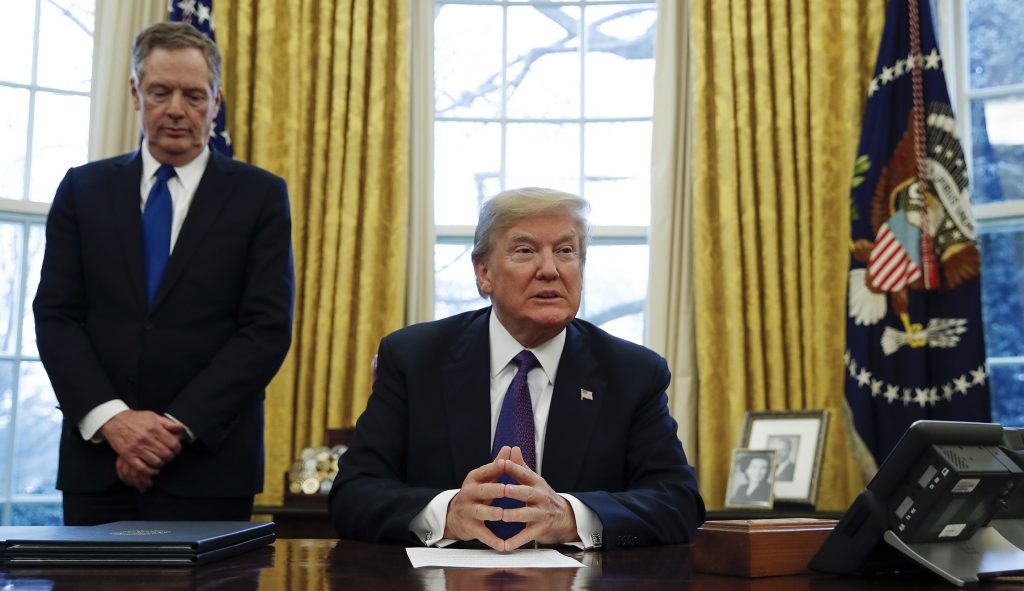To the Trump protectionist hammer, every product imported looks like a nail.
On Monday, we learned that President Trump’s trade enforcer, U.S. Trade Representative Robert Lighthizer, announced new tariffs on solar panels and washing machines assembled outside the U.S.
For washers and dryers from companies such as Samsung and LG, steep tariffs as high as 50 percent will be applied while solar panels assembled abroad face a duty of 30 percent for the next year. These tariffs act as taxes on foreign companies who wish to do business in the U.S.
To the casual observer, the biggest losers of these tariffs appear to be India, Korea, and, most of all, China.
But considering that millions of American consumers depend on imports for dozens of their appliances and goods at home, these measures end up hurting them the most instead.
Nearly 95 percent of Americans shopped at a Walmart in 2016, a retailer which offers low prices by a vastly robust supply chain with links all over the world. Is it really inconceivable that prices would have to rise in order to overcome the import barrier imposed on the various actors in that supply chain?
Without question, targeted tariffs may benefit one particular American company by increasing the costs of doing business for its foreign competitors. But that means prices for ordinary consumers and businesses that depend on those imports must rise, making them less affordable.
An analysis by the Wall Street Journal on the effect of steel tariffs in 2014 demonstrated that the higher cost of imported steel raised prices as much as 60 percent on products which use steel as a base metal. Domestic steelmakers such as U.S. Steel may have gained in trade volume and stock price, but companies that rely on cheap steel for their products were forced to raise prices and restrict supply – and that was bad for American consumers.
When the Department of Commerce announced a 300 percent tax on imported jets from Canada, domestic airlines balked. And with good reason. Now they will have to pay a premium to source their fleets, causing the price of air travel to rise for ordinary consumers.
The fact that China subsidizes its various industries is no doubt a concern for American manufacturers, and it should be.
A look at the United States International Trade Commission’s website finds dozens of China’s alleged manipulations: aluminum and steel tubing, wooden cabinets, paper products, and fluorescent lights.
But though slapping tariffs on every product deemed harmful to American industry may be well-intentioned, it has a demonstrated negative effect on the consumers Trump purports to help.
Low tariff rates since the 1980s have been a boon to shoppers and domestic manufacturers who rely on imports to sell to Americans.
No doubt, throughout the course of his campaign, President Trump pledged his support for American workers in manufacturing. But with advances in technology and streamlined processes, our economy is beginning to produce more engineers than part-assemblers. And that allows more and more Americans to raise their standard of living at a fraction of the cost.
It’s been 88 years since the disastrous Smoot-Hawley Tariff exacerbated the worst effects of the Great Depression, igniting an international trade war that made everyone worse off, as revealed in a 2003 paper by the New York Federal Reserve.
President Trump is still celebrating the victory he achieved with the massive tax overhaul in Congress, lowering taxes for entrepreneurs and workers across the country.
If Trump would like to help American workers, consumers, and companies, he’d be wise to not impose yet more government regulation and taxes on the imports that so many of us rely on.
A tariff, we should remember, is just another name for a tax.
Yaël Ossowski (@YaelOss) is a contributor to the Washington Examiner’s Beltway Confidential blog. He is deputy director at the Consumer Choice Center and a senior development officer at Students For Liberty.
Original link: https://www.washingtonexaminer.com/workers-cant-afford-tariffs-or-a-trade-war-president-trump/article/2646883
Yaël Ossowski



